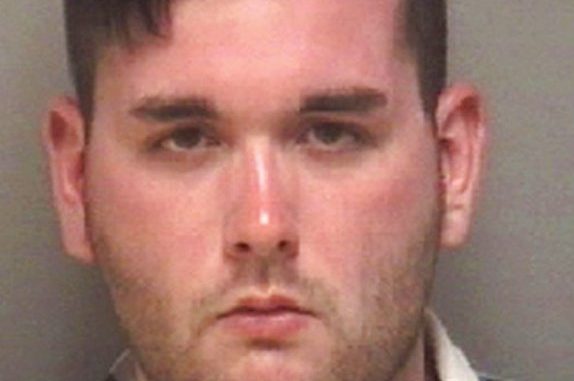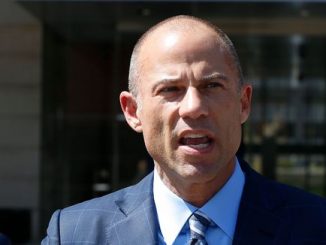
By KATIE BENNERThe New York Times
WASHINGTON—James Fields Jr., the suspect in the death of a woman who was mowed down along with other protesters last year outside a white supremacist rally in Charlottesville, Va., was indicted Wednesday on federal hate crime charges in the case.
Fields, 21, was charged in the Western District of Virginia with one count of a hate crime resulting in the death of the woman, 32-year-old Heather Heyer, as well as dozens of other counts of hate-crime acts that carry a possible sentence of life in prison. He also faces first-degree murder charges in state court; the authorities say he drove the car that killed Heyer and injured others.
“Last summer’s violence in Charlottesville cut short a promising young life and shocked the nation,” Attorney General Jeff Sessions said in a statement Wednesday. “Today’s indictment should send a clear message to every would-be criminal in America that we aggressively prosecute violent crimes of hate that threaten the core principles of our nation.”
Federal prosecutors charged Fields with two hate crime statutes that require proof that he was motivated to cause harm to other people because of their actual or perceived race, colour, religion or national origin.
Sessions was one of the first administration officials to forcefully denounce Heyer’s death at a time when U.S. President Donald Trump was being harshly criticized for declaring that “many sides” shared blame for the violence in Charlottesville.
The rally in Charlottesville came amid a string of removals of Confederate monuments across the South last year that drew varying degrees of protest. The demonstration by white supremacists over the city’s decision to remove the Lee statue had long been planned and devolved quickly into racial taunts, shoves and brawls. The governor declared a state of emergency and police and the National Guard cleared the area.
Fields was among the crowd of demonstrators “engaged in chants promoting or expressing white supremacist and other racist and anti-Semitic views,” according to court papers. After they were dispersed, prosecutors said, Fields drove away and encountered a “racially and ethnically diverse crowd of individuals” at the bottom of a hill who were protesting discrimination.
“Fields slowly reversed his vehicle to the top of the hill,” prosecutors wrote in the indictment, “then rapidly accelerated, ran through a stop sign and across a raised pedestrian mall, and drove directly into the crowd.” Fields’ car stopped only when it hit another vehicle, and then he fled, court papers said. Heyer was killed and more than a dozen others injured.
At a news conference days later in the lobby of Trump Tower in New York, Trump lashed out at critics, doubling down on the assertion that the counterprotesters were also to blame.
“There is blame on both sides,” the president said in a combative exchange with reporters. “You had a group on one side that was bad. You had a group on the other side that was also very violent. Nobody wants to say that. I’ll say it right now.”
Civil rights advocates rebuked Trump, his fellow Republicans rushed to condemn the resurgence of white supremacist rallies and others aligned with the White House withdrew their support, including several corporate executives, prompting the president to disband a pair of advisory councils they served on.
Sessions, who was long skeptical of hate-crimes laws that create federal jurisdiction over certain assaults and murders, is viewed with mistrust by many civil-rights advocates concerned about his ambivalence over expanding protections for minorities.
But he has nonetheless made enforcement of hate-crime laws a key part of his civil rights agenda and part of his broader tough-on-crime platform. “Hate crimes are violent crimes,” Sessions said last year.
The Justice Department has brought several such cases during his tenure. Three Texas men were accused of conspiring to lure gay men with a dating app and then attack them, and another Texas man was charged in an arson attack on a mosque.
The hate crimes charges against Fields underscored Trump’s refusal to condemn white supremacist views, said Vanita Gupta, the president and chief executive of the Leadership Conference on Civil and Human Rights and the former head of the Justice Department’s civil rights division under president Barack Obama.
“This very important and robust indictment by career prosecutors in the civil rights division of the Justice Department stands in stark and painful contrast with a president who has refused to this day to unequivocally denounce the white supremacists, some of whom marched in his name,” she said.
Read more:
Georgia police use anti-mask law made for KKK to arrest counter protesters at neo-Nazi rally
Black man beaten at Charlottesville rally found not guilty of assaulting white supremacist
Charlottesville police chief resigns after report slams force’s handling of rally
Source www.thestar.com



Be the first to comment